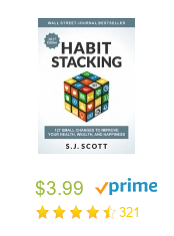
8 Frequently Asked Questions About Underwater Mortgage

Solutions For Your Underwater Mortgage
Finding yourself underwater because of your mortgage isn't the end of the world. Yes, you will need to face difficult challenges, and perhaps you'll find yourself in uncomfortable situations, but never lose hope. You can take action - negotiate, conduct an auction, or relinquish your deed. There are ways out of this particular bad situation, and you will learn more about your options here.

1What Does Being "Underwater" Mean?
More likely than not, a property auction will take place once you find yourself entirely underwater. When you're underwater, your lender sends you a Notice of Default. You have little time left, in this case.
How can you keep your home and avoid foreclosure or selling your property? The obvious answer is that you need to pay all of your due payments to halt the foreclosure process, but where will you get the money? There are several ways to save your home. Although the odds may be stacked against you, don't give up.

2Should You Fight Or Negotiate?
When a foreclosure is looming in front of you, you can either fight back or attempt negotiations to resolve the matter. One of the things that you can do first is to talk to your lender about your problem. Insist that you need to discuss a serious matter with your lender face-to-face right away.
Ask your lender about what you can do to delay the foreclosure process. If possible, check how you can reduce your payments by adjusting your mortgage, which likely involves lowering the principal amount or the interest rate. Instead of losing your property to foreclosure, consider refinancing or reducing your payments.

3Is It Okay To Negotiate A Small Payoff?
The best time to negotiate a small payoff is after you have sold your house. When making an appeal or talking to your lender, you should remain polite and always keep an open line of communication with him. Some people believe that these are the same thing.
Remember that such things make you more human to a lender, like your humor, personality, and worth; in essence, you are giving a face and name to your property. It's usually more difficult to give someone you are acquainted with a hard time, compared with someone whom you have never even met. Don't forget that a lender can delay foreclosures.

4Can A Home Auction Be Postponed?
If you can offer your lender another feasible alternative, he can help postpone your home's auction for a few days to even an indefinite period. But, you must discuss your options or requests with your lender, or nothing will happen. You can look at other possible options, and you must also demonstrate your willingness to cooperate with your lender so that both of you will get what you want.
Often, lenders are willing to provide assistance instead of going through the tedious and costly foreclosure process. Also, one way that will make things easier for your lender is, if you surrender your property's deed. This means that you are ready to move out and put your property in the hands of the bank or lender to avoid foreclosure. The bank then takes control of the property and sells it.

5Should You Give Up Your Deed?
Relinquishing your deed is a viable option, although you will not likely get any money from it. The benefit here is that your credit report won't have a foreclosure. Remember that some lenders do check if you've given up a deed to avoid foreclosure, which could come up in case you decide to either buy a house or rent; but it's not a huge negative compared with foreclosure.
When you do decide to give up your deed, you must get your lender's consent and cooperation too; the lender must accept this. This probably sounds like a desperate move, but this may be your final chance. Once foreclosure procedures begin, you will not only be left to pay the house bill, but there are other charges that you need to shoulder as well. During such times, it's best to get advice from a credit counselor or hire a real estate lawyer, who can help you out.

6What's Next After Filing For Bankruptcy?
Once you file for bankruptcy, it is possible for your judge to delay foreclosure. Hence, you have some time to search for other ways to solve the problem. You can then choose either refinancing or selling.
During this time, your judge will not have the ability to alter your loan. This means that he cannot grant requests regarding lowering the monthly loan payments or reducing the interest rate or the principal amount. However, certain bills have been passed to Congress that seeks to allow judges to have control over such factors.

7How To Use Legislation To Your Advantage?
Legislation regarding such real estate issues was first authored and passed in 1918, which was a strategy aimed to help World War I servicemen. At present, you should check if such legislation or bills have become laws. In 1940, it was rewritten, and its primary aim was to help World War II servicemen. In 2003, the legislation was expanded to include members of the armed forces who served during the war in Iraq.
Today, the SSCRA (Soldiers and Sailors Civil Relief Act) helps in halting foreclosures of properties belonging to servicemen and their dependents, particularly during the time of active service up to three months after that. Such laws can apply to either trust deed or mortgage. It's crucial for a service member to be the owner of the property in question during the time that the relief was requested.

8What Is Relief?
You will find relief from your debts, once you file for a stay of proceedings, or perhaps request for an extension of your mortgage's date of maturity or reduced payment. The judgment can be reviewed once the decision to foreclose has been released or even if the sale has already been made. Learn what SSCRA is and how you can benefit from it.
Understand that SSCRA won't eradicate your financial obligations. Instead, it could delay the process. Google "SSCRA" and learn more about it, if you believe that this could work to your advantage.
Ignoring a financial problem isn't an option; you must face it! Keep in mind that finding yourself underwater in terms of your mortgage does not necessarily mean that you should stay that way; you can fight and seek solutions to the problem before the foreclosure process begins. Act right away so that you can have the best outcome. Good luck!
About Author
Jackie Wing
GET THE FREE MAGAZINE DELIVERED STRAIGHT TO YOU:









































